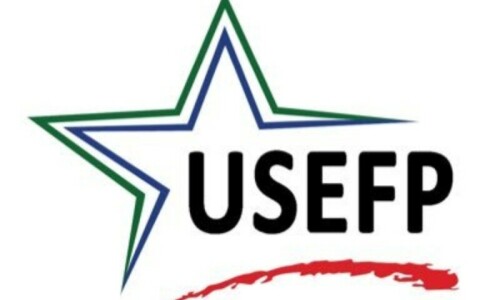So what is Andhera Ujala’s biggest pull? It doesn’t have a huge name attached to the cast, though director and lead Umar Sultan does have his fans. It’s an ‘original Urdu comedy theatre play’, but not too many of us are fussed about originality as long as we can enjoy great theatre for a while, or at least spend a couple of hours being entertained.
Andhera Ujala’s attraction is in the fact that it is a nod to the PTV classic of the same name. Umar Sultan and playwright Shafqat Ali do not revive the old characters Karam Dad and Jaffar Hussain, but instead introduce us to their offspring Sanam Dad and Arif Hussain. And as Umar Sultan noted before the play began, it was Arttainment Productions’ way of honouring PTV, the original Andhera Ujala, Pakistani cops and comedic actors Moin Akhtar and Lehri, as well as a contribution to the revival of theatre in Pakistan.
Andhera Ujala has a promising beginning. The stage lights up to show the police station which is Sanam Dad, Arif Hussain and their underlings Chan Mayi and AD’s playground. Zany petty criminals and a permanent jail resident flit in and out of the station, and it is all fun and games till SHO Umar — played by none other than Umar Sultan — walks in. Then it’s more fun and games. Except now the SHO seems to have taken over the stage.
SHO Umar’s special quirk is his proclivity to speak and behave like Amitabh Bachchan, his idol. Sanam Dad too is quite the fan of Salman Khan’s Chulbul Pandey. Throw in some singing and dancing and you have a mini Bollywood within the police station. This should all be fun, right? It is, except for when it’s not.
Umar Sultan has a real eye for talent, we must give him that. All the main characters — Sanam Dad played by Syed Jameel, Arif Hussain played by Faizan Shaikh and Meer Aslam and Jawad Qureshi’s Chan Mayi and AD, respectively — are terrific. Even the miniscule role of a mobile snatcher played by Abdul Ahad Khan is lots of fun to watch. But all this talent seems wasted in this particular production.
Yes, there are zingy one-liners that make the audience positively howl with laughter. And the song and dance sequences are entertaining, even though it may feel like we’ve all suddenly stumbled off what was a play into an episode of Jhalak Dikhla Jaa for no apparent reason. And yes, it is the actors’ skill and timing that make us laugh at those well-written witty lines, but Andhera Ujala is still disappointing.
For most part, the entire play seems like a showcase for just how closely the director and actor Umar Sultan can play Amitabh. There are approximately 25 minutes of all the other characters getting some stage space, and then enters SHO Umar and boom! It’s all about him. Technically, it is grating because good theatre is made of a solid plot, script and substantial interaction between characters. And while it is not unheard of a director casting himself in his own production, it must be justified.
In Andhera Ujala, it simply is not. There is absolutely no plot to this play though the script is witty, albeit meandering. SHO Umar does interact with other characters, but overpowers them not because he is better, but because of the loud Amitabh Bachchan enactment and monotonous monologues. After perhaps an hour and 40 minutes of this, some of the audience may wish they had quit earlier. But that will be a tiny ratio of the audience.
For most part, Andhera Ujala won itself big laughs, and the dance sequences, big applause. Choreographer Veer Andrew and his troupe are a revelation, and apart from some great new actors, they are the best thing to result from Andhera Ujala.
The play does revive a certain form of Pakistani theatre — the stage show. Before the trend faded away for whatever reason, shows starring Umar Shareef, Moin Akhtar, Shehzad Reza and the rest of the gang were enthusiastically attended in Karachi and their videos rented out everywhere else.
A play like Andhera Ujala will find a huge audience, but it’s unfair to leave a chunk of that audience untapped because of the steep ticket price. With huge sponsorships now backing a lot of stage and theatre ventures, perhaps it is time to rethink prices (what say, Shaan?). After all, true revivals don’t happen without an industry becoming more inclusive.















































